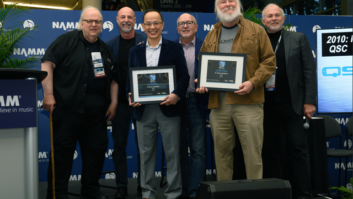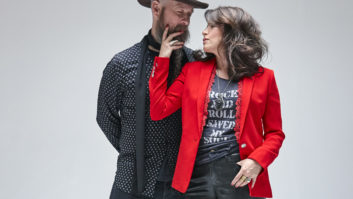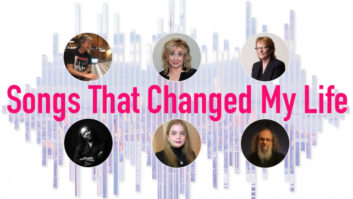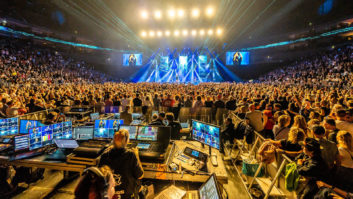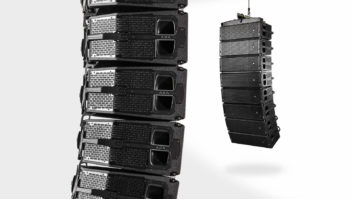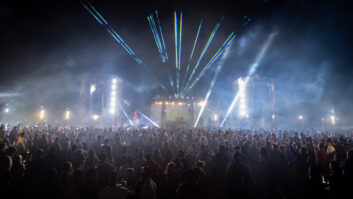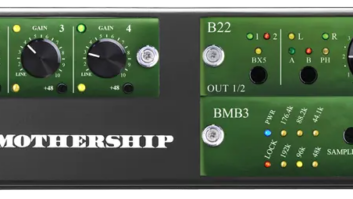
Pianist Lara Downes has become well known for her cross-genre renditions of the American songbook, past and present. Her extensive discography, which also seamlessly blends traditions and cultures, includes celebrations of the likes of Billie Holiday, Leonard Bernstein and Aaron Copland.
Yet she hasn’t neglected her own roots, memorializing her visits to the concert halls and conservatories of Europe in her early teens through interpretations of classical music by Johann Sebastian Bach, Sergei Rachmaninov and Béla Bartók. Her latest album, Some of These Days, a 14-song collection released April 1, is her most personal statement yet.
Downes’ parents met at a sit-in in San Francisco in the late 1960s. “He was a black man from Harlem and she was a Jewish girl from Akron,” she writes in the new album’s liner notes. Some of These Days includes many of the freedom songs of the civil rights movement her parents sang, such as “Hold On” and “We Shall Overcome,” many of them with roots in the hymns and spirituals of the pre-Civil War era. The collection also includes pieces by celebrated early 20th century African-American women composers such as Margaret Bonds and Florence Price.
This latest project, featuring collaborations with a handful of guest artists, was co-produced by Downes with engineer and co-producer Adam Abeshouse. All but two of the songs were recorded at the two-time Grammy winner’s Abeshouse Studios in Pelham, NY.
On choosing songs
My entry point to this project was from two separate ends. I think that there’s all this buried memory. For me, as a musician, there’s all of this stuff that is truly in my DNA and I keep running into it over and over again.
For the last few years, I’ve been really interested in this one particular point in musical history when the African-American tradition and the European concert tradition came together, which happened twice. Right around the turn of the last century, in 1892, [Czech composer Antonín] Dvořák came to America. That sent concert music in this country on a certain path. It happened again in the 1930s with composers like Florence Price and Margaret Bonds really taking an extra step and integrating their traditions. This is all related to the Great Migration and the redefining of American cities. Everything changed.
I thought I was going to make a recording of works by Price and Bonds that I had come across, but I realized in the process that what was really speaking to me, and what I found the most compelling, was their investigations and their reimaginations of spirituals. Then everything exploded and there I was, making an album.
Spotify link: Listen to Downes’ recordings of Florence Price songs
For personal and emotional reasons, there’s been a lot of resonance for me in this music, running back into my parents’ story and realizing that all of these things are connected. I never wanted this album to be a historical document because all of these questions of freedom and justice are so starkly relevant in the time that we’re living in now. We still haven’t gotten that quite right.
On the album’s opening track, “Sometimes I Feel Like a Motherless Child”
It’s an archival field recording from the Library of Congress, from the 1939 [John and Ruby] Lomax field recording trip through the Southern states. That recording was made in a women’s penitentiary in Raiford, FL, in the Jim Crow era. It takes us back to the origins of the music, to all the tragedy, the reality of where it comes from. The intention in that moment is very clear. This was a song about family separation in the slave trade. At the same time, we’re having children separated from their mothers at the border today. It’s this circle that just continues.
It puts a lot of things into focus. I guess the lesson is that progress isn’t consistent. I keep touching base with my mom about this. She was there on the ground in the ’60s. She keeps reminding me this is not a march forward; this is a march forward, then back, then forward again.
https://soundcloud.com/laradownes/1-sometimes-i-feel-like-a/s-QqJMT
On working with Adam Abeshouse
This is our fourth or fifth album together. I think we started working together in 2015. I’ve worked with a handful of producers, but it’s just such an amazing thing when you get into this rhythm where you have the trust and unspoken communication.
Most of the album was just Adam and me at the house. It’s really wonderful to be able to know Adam’s piano as well as I do. It’s really good to feel at home when you record.
I have this version of “Nobody Knows the Trouble I’ve Seen,” and Adam said, “I want to try to play this.” This was one of the most moving moments of my life so far as a musician. Adam is a fine violinist, but he’s had problems with arthritis for a few years. He said, “Let’s get the violin out.” And all of this stuff came through. He lost his father about two years ago. There was a lot of pure emotion flowing through our reading of this piece. Of course, he couldn’t man the controls, so his wife, Maria, had to press start and stop.

On the current coronavirus lockdown
As terrible and as terrifying as this is right now, clearly we will come out of this differently. I think it’s making us realize that we are all one community and we’re all really dependent on each other and connected.
We have some tools that we haven’t taken advantage of yet. Maybe this will make us look at our mechanisms and our distribution streams just the way we do our business. We can certainly do things more efficiently.
I’ve gone around feeling guilty and embarrassed about not knowing more than I know about the technical side of things. Maybe this is my chance to educate myself.
Lara Downes • www.laradownes.com
Instagram @laradownesmusic
